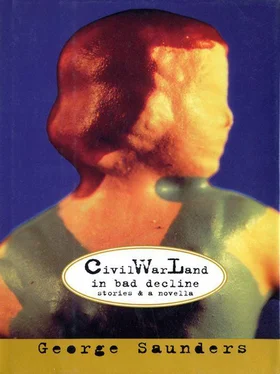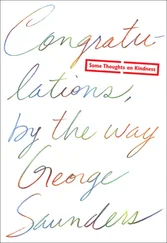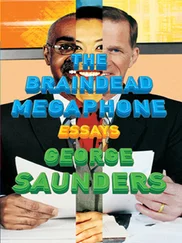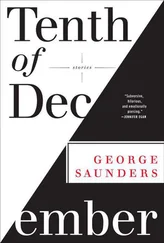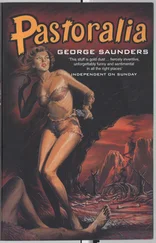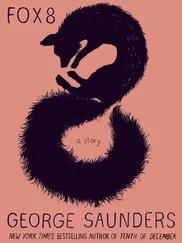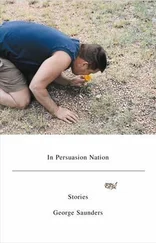6.
I set foot in my first theme park in 1969. It was Six Flags over Texas, outside Dallas. I loved it so thoroughly that, all the way back to Chicago in the car, I conspired with my sister to build a scale model of it.
Well, that never happened. But I still remember the baffled joy I felt on leaving the place, thinking: Wow, someone did this, someone made all this, some grown-up sat down and designed the little Mexican back alleys and cowboy boardwalks, the fake bird sounds.
In a sense, these stories were that scale model, much delayed.
But also, while working on “The Wavemaker Falters,” I noticed something: if I put a theme park in a story, my prose improved, the faux-Hemingway element having been disallowed by the setting. Placing a story in a theme park became a way of ensuring that the story would lurch over into the realm of the comic, which meant I would be able to finish it, and it would not collapse under the conceptual/thematic weight I tended to put on a so-called realist story.
I loved making these places up, and even now will still flash on certain vistas within them, vistas that never existed except in my mind, for a few months, back then, at Radian.
7.
The book formed slowly, one or two stories a year over seven long years. Entire office eras started and ended, managers came and went. Whole rooms at Radian were emptied, repurposed. A corridor got lopped off and reframed and absorbed by our neighboring company, a mob-related outfit that claimed to sell penny stocks and whose president once fired a guy by beating the shit out of him in the vestibule near The Snot. People married, cheated, remarried. World Series were played, communism vanished, somewhere the Internet was invented, our kids worked their way up the grades, learning to read, catch, sing. Who can remember what was actually going on?
Mostly I was using whatever story I happened to have going at the time to get me through the day and give me some minimal sense of control and mastery. They were a secret source of sustenance. If I got a few good lines in the morning, that made the whole rest of the day better.
That much I remember.
8.
When I was in my twenties I had this plan to go to El Salvador and write about the experience. I had no money, didn’t speak Spanish, but this was “my dream.” I stopped by one day to see a friend of mine but found only his father home. I’d never spoken to this man before, not really. He was a truck driver, a father of eight, always went around in a white T-shirt and a pair of Buddy Holly glasses. But this day, we talked. I told him about my El Salvador plan, expecting him to find it indulgent. But instead he said, “You know what? You have to do it.”
“Yes,” I said, with the force of revelation. “I do. I really do.”
“And you know why?” he said. “Because you know who you’re going to blame if you don’t?”
I did know.
“Myself,” I said with a knowing smile.
“Bullshit,” he said. “You’ll blame your wife and kids.”
I often thought of this conversation when I was stealing time from Radian to write this book. If I didn’t, I told myself, I was going to become a bitter old-fart version of myself, blaming Paula and the girls.
So I stole like a mother. I wrote in the bathroom, I printed using the company printer, I turned away from my Kodak report to jot things down, I edited while waiting for an offsite groundwater remediation system to purge, I sometimes blew off a full afternoon when I was feeling ripe, although usually, when that happened, I’d take work home, just to be fair.
9.
In grad school I had grown suspicious of conventional literary beauty, wary of what I thought of as, for example, the literary triple descriptor: “Todd sat at the black table, the ebony plane, the dark-hued bearer of various glasses and plates, whose white, disk-shaped, saucer-like presences mocking his futility, his impotence, his inability to act.”
Christ, I had come to feel, just say it: “Todd sat at the table.”
Or better yet, cut that, too. Why do we need to know that Todd is sitting at a table? Let me know when Todd actually does something. And it better not be “raising a cup to his lips” or “pausing thoughtfully to let Randy’s insight fully inform him.”
I was feeling a little cranky back then, re prose.
10.
One of the new stories, “Downtrodden Mary’s Failed Campaign of Terror,” was accepted by Quarterly West. Paula and I went out for a celebratory dinner that cost us twice what the magazine paid. I sent “The Wavemaker Falters,” over the transom, to The New Yorker, which rejected it with a nice (signed!) letter that I, in a surfeit of enthusiasm, showed around proudly at work, even to one of our more straitlaced managers, who said, “Uh, yeah, Georgeman? We’ve been noticing that you’ve been producing your … literary thingies using corporate resources. And that’s going to need to stop.”
That’s what you think, I thought.
The new stories kept getting accepted. Finally The New Yorker took one of them, “Offloading for Mrs. Schwartz.” I heard the news at a Microtel in Watertown, New York, where we were doing a study of what was called “an historic paint dump.”
Paula went around to several doctors’ and dentists’ office, collecting old New Yorker s, and strung these into a sort of banner, and under the banner the four of us had cake, to celebrate.
11.
I expect that my younger self — the self who wrote this book — would have hated the idea of an author’s note. No explanations necessary, he would have said; all meanings are contained in the stories themselves. Explanation is reductive, reading visceral. The stories are either doing the work or they’re not. Don’t yap it up. And I agree with all of that. And I agree with all of that. But I’m older now and feeling nostalgic and—
I just wrote and deleted this phrase: I really miss those days.
I will forevermore, I expect, be trying to re-create the purity of that time. Having done nothing, I had nothing to lose. Having made a happy life without having achieved anything at all artistically, I found that any artistic achievement was a bonus. Having finally conceded that I wasn’t a prodigy after all, I had the total artistic freedom that is afforded only to the beginner, the doofus, the aspirant.
12.
After the book finally came out, I got a phone call from an old next-door neighbor in Chicago, whom I’ll call “Mrs. L.”
“I read your book,” she said.
“Ah,” I said.
There was a long silence.
“Did you like it?” I asked.
“No,” she said. “It worried me. I’m worried about you. You seem like a very unhappy person. Like the guy who takes out the garbage, late at night, miserable and grumbling.”
I didn’t quite know what to say to this and waited for some sort of softening praise, of the “But still, wow, you published a book ” variety.
But no.
“I’m worried,” she said. “That book is not like you. You were always such a happy little guy.”
Wait a minute, I thought once she’d hung up: I’m happy. I’m one of the happiest people I know. My book is not unhappy. My book is funny. My book tells, uh, dark truths. I’m a hopeful person. Writing this book was a happy, hopeful act.
And that was true. I’d been plenty hopeful while writing it. I’d been hopeful that I might finish it, and that it would be published, and that its publication might make life happier for the four of us; I’d been hopeful that Paula and I would stay happy and together over the years to come, hopeful that that our kids would grow up to be wonderful adults.
Читать дальше
